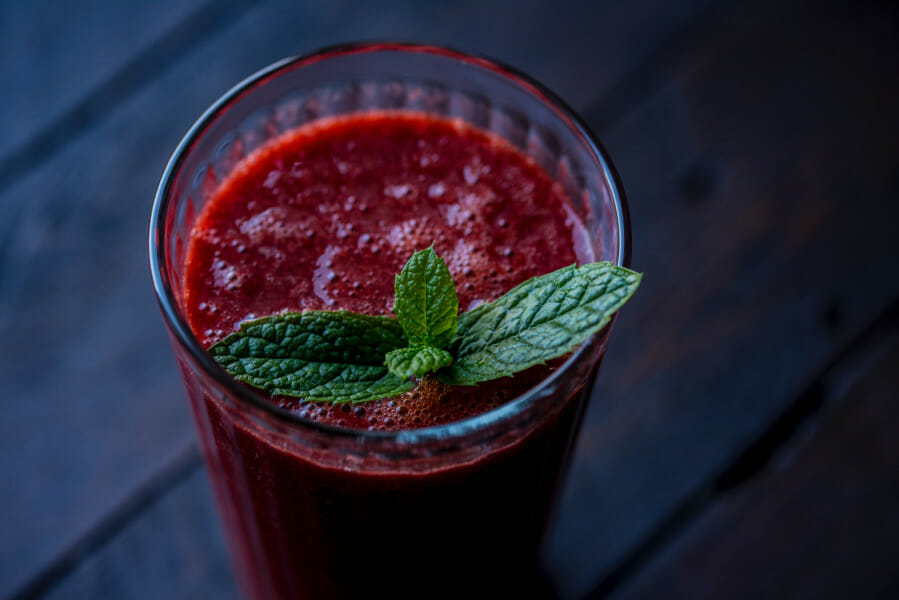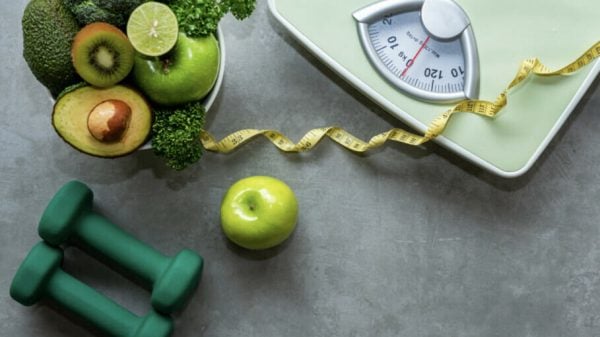After close to two decades of exercising consistently, I’ve established a quite steady routine: I arise around 7 a.m., consume my pre-workout supplement and have a Rice Krispies Treat (my preferred pre-workout snack!), head to the gym around 7:30, train for approximately one hour, stretch, return, prepare a protein shake, and continue with my day.
Despite enjoying the boost it provides me, pre-workout supplements are generally disapproved. They are not regulated by the FDA, often make exaggerated or unsupported claims, and may consist of some questionable ingredients like artificial sweeteners and fillers. I also understand that I can only handle about half a scoop mixed with 8 to 10 ounces of water because it contains a lot of caffeine, and I dislike the jittery feeling it can induce.
I had been observing research about how beetroot juice (also known as beet juice) has promising training benefits, such as enhancing sprint performance, improving high-intensity exercise, sharpening brain function, and assisting with endurance in athletes. There was also a study published in January stating that consuming beetroot juice “significantly increased muscle force during exercise.”
Intrigued, I chose to test the beet juice theory for a few weeks. I engage in strength training about four days a week and do 30 minutes of cardio one to two days a week, so I was curious about the outcome of replacing my pre-workout powder with something more natural.
I also sought the advice of a sports dietitian to analyze why beetroot juice has a unique advantage—and whether it’s really worth the hype.
The strength of beet juice lies in its dietary nitrate
The reason beet juice, in particular, has been researched in relation to athletic performance is because it contains dietary nitrate. When the dietary nitrate interacts with the saliva in your mouth, it produces nitric oxide, as explained by Nicole Lund, MPH, RDN, clinical nutritionist at NYU Langone Sports Performance Center. This nitric oxide in the body is believed to be the mechanism that can enhance athletic performance: it dilates blood vessels, increasing blood flow and delivering more oxygen to your muscles, thereby enhancing endurance and strength.
As this is a rather scientific process, the benefits depend on the quantity of beetroot juice you’re consuming and how soon before a workout. With numerous studies assessing beet juice and athletic performance, the amounts range from a few ounces to two full cups beforehand, but it seems that consuming 16 ounces is the standard protocol. It’s also widely believed that the effects will start to take effect around an hour after consumption, with a peak effect occurring after two to three hours.
Beetology Organic Beet Plus Lemon and Ginger Juice — $43.00
Case of six 8.45 fluid ounce bottles
Lund, however, explains that all of this varies from person to person, and some research suggests that certain individuals may not respond to beetroot juice or dietary nitrate at all, indicating a potential genetic component. It’s also important to note that in the published studies, women are greatly underrepresented. Additionally, many of the studies were of short duration, so there is limited research to evaluate the long-term benefits of consistently consuming beetroot juice before training.
Nevertheless, Lund sees no harm in trying it. When working with clients and examining supplements, she considers three aspects: Is it permissible for their sport or organization, is it safe, and is it effective?
“We know for sure that [beetroot juice] is legal and safe, so it checks both of those,” she says. “And based on everything I’ve read, there are some promising results suggesting it could be effective. Whether or not it’s effective for every single person, this is similar to most things in the nutrition world—we don’t know.”
There are numerous other factors influencing peak performance
In reality, maximizing your training session involves much more than imbibing beet juice a few hours beforehand. Lund emphasizes the importance of having an overall healthy diet, including adequate protein, fiber, vitamins, and micronutrients to establish a solid foundation.
Prior to a workout, she notes that some individuals perform better training on an empty stomach or consuming only a small amount of carbohydrates, especially if it’s early in the morning. If there is more time available, she suggests integrating something with carbohydrates and protein, particularly for longer or higher intensity workouts. Additionally, being well-hydrated before a workout is crucial.
Other factors that can impact performance include the quality of sleep the night before and ensuring proper rest and recovery between workouts.
What occurred when I experimented with beet juice
Being a committed journalist, I acquired two 32-ounce bottles of beetroot juice made with organic fresh-pressed beets and organic lemon juice from Whole Foods to begin this experiment. I initiated this experiment on my first day back at the gym after being out of town for over a week, so I was already deviating from my regular workout routine and uncertain about my strength levels.
I consumed 12 ounces of the beet juice three hours prior to a lower-body workout, and it tasted quite pleasant! Better than I had anticipated. During that time, I also had two cups of cold brew and a pre-workout snack of a brown rice cake with all-natural peanut butter and half a Rice Krispies Treat since I anticipated getting hungry and needing something more substantial before hitting the gym later than my usual schedule.
As I hadn’t engaged in a lower-body workout for a while, I commenced my barbell squat at 115 pounds (I typically increase to 125). It felt unusually burdensome, so I didn’t raise the weight for the remaining three sets. I completed the rest of my lower-body workout and did not notice a significant difference; I didn’t feel exceptionally sturdy, but I was content to accomplish a workout on my first day back.
The following day was an upper-body workout, and due to a hectic schedule, I didn’t get to it until 7:15 in the evening. I consumed another 12 ounces of the juice around 4:15, a couple of hours after lunch. I felt remarkably good during my workout, especially since I hadn’t completed an upper-body workout in about 10 days. Despite having sufficient energy, I only reached a maximum on my incline bench press with 25-pound dumbbells (I had previously reached a maximum with 30s). Nonetheless, I was content with my workout.
On my cardio day, I consumed the beet juice about two and a half hours before a 30-minute Peloton indoor cycling class, and I didn’t observe a noticeable difference. Once again, I hadn’t engaged in cardio for over a week, so it could have been due to my reduced endurance. However, I often feel more energized when I consume my pre-workout powder beforehand. This also occurred in the late morning, and I had only consumed a protein bar for breakfast, so I was beginning to feel hungry, which didn’t aid my workout.
When I had my subsequent lower-body day, I did notice that I felt more robust and could lift slightly heavier than on my previous leg day. I meetingmy maximum weight in barbell squats and even increased by 20 pounds on the leg press. After drinking the beet juice about three hours before this workout and having lunch around two hours earlier, it is possible that the performance increase may have been influenced by the salmon, rice, and vegetables I consumed.
After six workout sessions, I came to the realization that incorporating this routine into my schedule was too challenging, especially given the importance of timing for the effectiveness of beet juice. Since I usually work out first thing in the morning, waiting for the beet juice to take effect at some point during the day became burdensome. Even if there were performance benefits, it began to disrupt my meal schedule, meetings, and other commitments. I much prefer to exercise early to complete it quickly and train without consuming anything that might upset my stomach. Although I had intended to continue this experiment for another week, it simply did not fit into my schedule, particularly as I became increasingly busy.
Moreover, personally, I didn’t notice a significant increase in endurance or athletic performance. While my second lower-body workout was better than the previous one, it could also be attributed to my lunch or getting back into the rhythm of exercising again after a break.
Reasons for not continuing to consume beet juice
While there is compelling evidence to suggest the benefits of beetroot juice during training, for me, trying to time a workout two to three hours after drinking it became more of a hassle than it was worth. I prefer the boost I receive from my pre-workout powder (I acknowledge it’s not the healthiest option, please don’t criticize me!), especially since I only need to consume it about 20 minutes before my workout.
However, as Lund suggests, there is no harm in experimenting with beetroot juice to see if you experience any of the benefits. “I think that there’s a time and a place for these kind of safer things to dabble in, but it’s never going to replace high-quality sleep, a good diet, proper recovery, and rest,” Lund says. Still, if you’re looking to experiment, it might be worth a try—just don’t be startled if there’s a pink or reddish tinge when you go to the bathroom.










